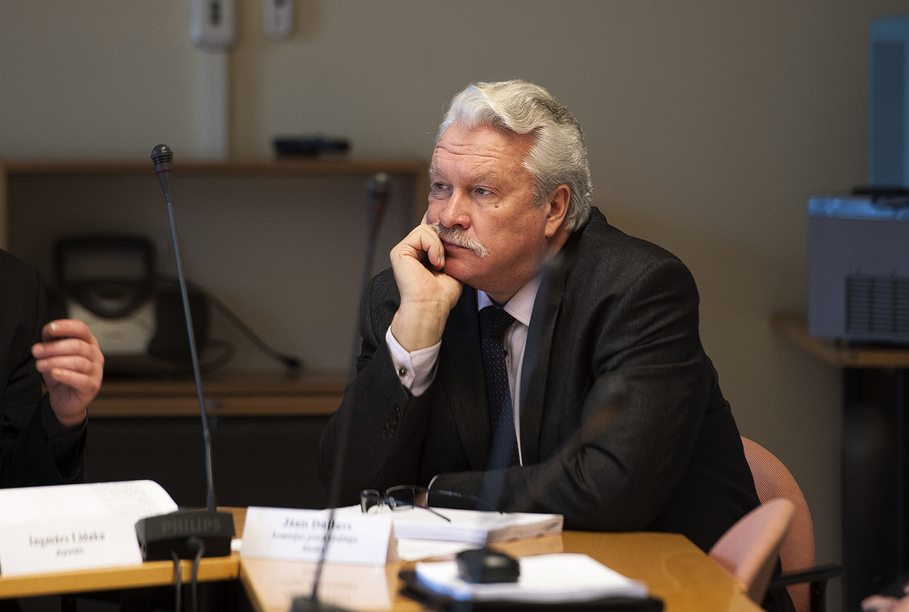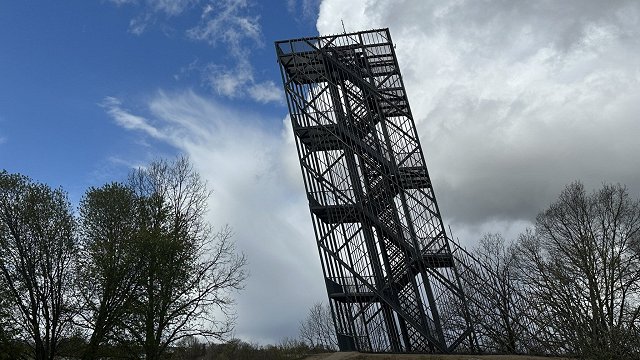“The time for wishful thinking is over. The time for saying ‘please’ is over. Actions must be taken by the vets, the orders have been given,” said the minister at the session hosted by Latvia's Local Government Association (LPS).
According to proposals currently being floated for dealing with the African swine fever (ASF) crisis, the only pigs exempt from the mandatory cull would be those whose owners adopt properly inspected and approved biosecurity measures in their pens.
Duklavs told LTV news program Rita Panorama that the ruling for such a large-scale elimination of live domestic animals is pending later this week. Meanwhile, health authorities with the state Food and Veterinary Service (PVD) have been scrambling for several weeks now to ensure that the dangerous strain of swine fever doesn’t spread further into pig populations in Latvia and other countries and potentially impact the world pork industry.
PVD director Maris Balodis told the gathered LPS leaders that the infection had likely spread to northern Vidzeme province through contaminated feed brought from the quarantine zones of southeastern Latgale onto the Valka district pig farm. He warned against the widespread threat from the fresh feed of the pending harvest season and underscored how essential it was to now use only thermally-treated feed grains recommended, approved and registered with the authorities.
Balodis re-emphasized that local residents in the affected areas are still not making sufficient efforts to clean their outerwear and keep their domestic animals and human visitors isolated from their natural surroundings as they move to and fro.
The PVD chief explained that inspectors are already helping to schedule slaughters with pig owners who are convinced they will not be able to secure their small farms with the necessary biosafety facilities for the next year at least. They are now preparing to sign contracts to completely refrain from swine-raising for that period of time. If the pigs are tested as having been healthy, the meat can be consumed.
“Better to decide to change now to sheep, rabbits, hens, cows, but not pigs,” Balodis recommended.
Balodis explained that the PVD is in the process of procuring an incineration vehicle from Great Britain, which it will rent for now according to its state of emergency prerogative. The single mobile crematorium will have to cover the affected stretch of border zones from southeastern Latgale province, where the ASF outbreak was first detected on June 27, now to northern Vidzeme, where it broke out July 18.
“We’ll have to see how it goes with this one unit,” said Balodis. “It should be enough to at least stop the ongoing ad-hoc pyres we’re seeing now.”
As for the reported reluctance of hunters to join in mass culls of the wild boar population, Balodis urged local hunting collectives “do their job now while we can still mechanically reduce the population. Otherwise it will happen because of the virus and take the whole national pork industry with it,” he warned.
Andris Kreslins, general director of the state Forest Service (VMD) – which enforces hunting licenses and regulations, explained that the “bigger job” remains with Vidzeme’s dense wild boar population, whereas the situation in the forests of Latgale is “satisfactory”. Kreslins said the VMD is meeting with hunting clubs and their coordination committees to better and more rapidly respond to culling and hygiene requirements, recommendations and orders.
Balodis then explained that containers for the placement of hunted carcasses and their byproducts were not yet procured and put into place in the newly-declared state of emergency zones in Vidzeme.
“But if you want to hunt boar, now is the time because half-a-year from now there may not be any to hunt,” the PVD director said.
On her part, Janina Jalinska of Daugavpils district urged the state officials to consider better informing the public through the mass media, especially Russian-speaking television channels and other bilingual means.
Artis Velss, a deputy chief of the State Police (VP) told the local government leaders that the VP is working closely together with PVD in deploying stationary and mobile patrols in Vidzeme and Latgale to monitor compliance with the state of emergency.
Velss admitted that “people are dissatisfied that they don’t know about the measures and what they may or may not be allowed to do inside the zones.”
“We’ve encountered both annoyance at being pulled over, and unnecessary excess, too,” the police department head said. He reminded local government leaders to tell their populations that the VP is fully authorized to support the state powers granted to the PVD during this crisis, “and we will back them up fully in fulfilling their responsibility.”
He also reminded hunters’ groups heading out onto wild boar culls to make sure all of their weapons are properly registered, as the state of emergency does not nullify any existing laws or regulations.



























